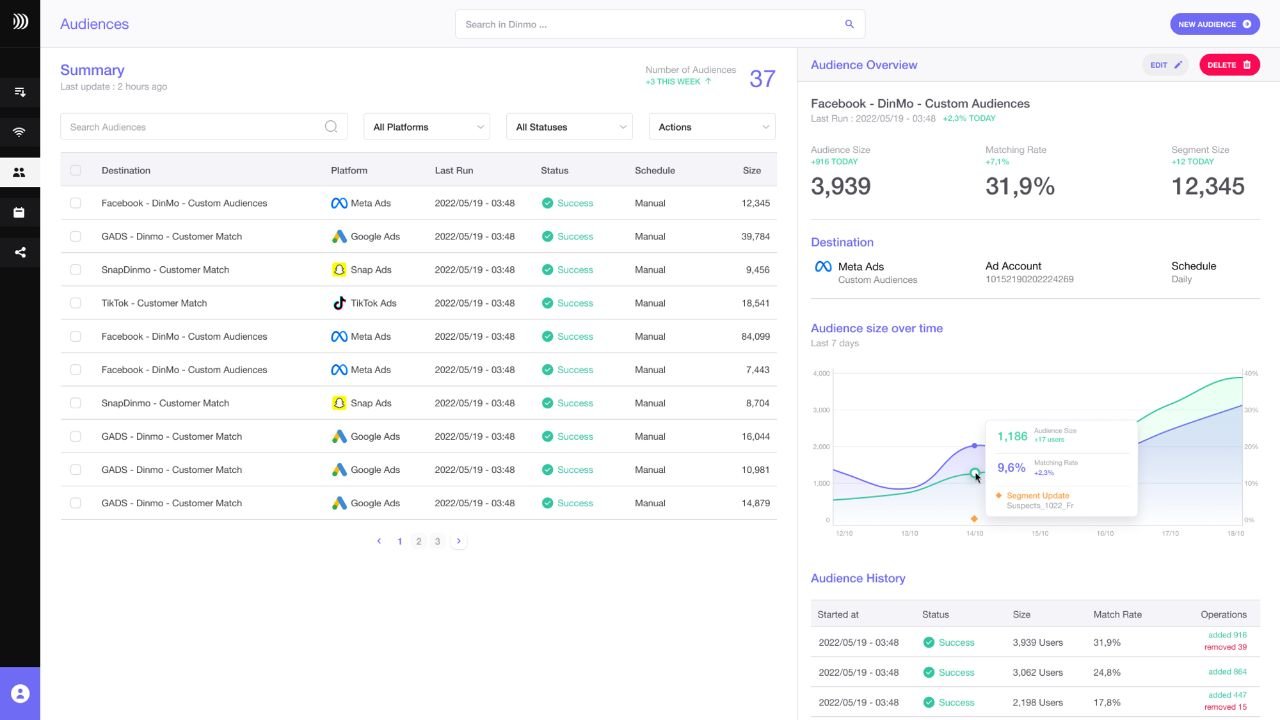DinMo, a data warehousing startup that's addressing customer data siloes, today revealed raising €1.6 million in seed funds.
Pan-European seed fund Seedcamp has led in the Paris-based startup's seed round, which reached a final close with further contributions from Kima Ventures, Motier Ventures and Financière Saint James.
A number of business angels also featured some possessing marketing and data expertise, including Amirhossein Malekzadeh (co-founder of cloud monitoring service Logmatic.io, now DataDog HQ), and Stéphane Levy (founding president, digital marketing and performance agency, Labelium)
The new funds will allow DinMo to bring on more product engineers, following the launch of its platform in early September.
In the new age of hyper-relevant business intelligence, data warehouses provide cloud systems for managing, analysing and reporting on that data from straight from source.
A data warehouse is defined as a centralised data deposit, with embedded analytics tools for executing various business intelligence tasks.
Ideally, the warehouse allow C-level executives immediate access to datasets that may have occurred months or years ago, so they can be merged into boardroom-level strategic thinking.
With customer data, today's systems usually group datasets and assign them to each historic customer. Customer relationship management (CRM) systems, like Salesforce or mParticle, are typically used and often run from the cloud or in-premises; the latter crucially offers advantages around cyber security.
But DinMo says there's a big flaw with CRM-based data management solutions. It claims "expensive" CRM software licences are perceived as being for wealthy companies, and possess "complex" implementation curves.
There's also privacy issues surrounding the way CRM data is handled, and these issues proliferate once a remote data warehousing platform is employed.
Billed as the "easiest way" to active customer data, DinMo aims to resolve complications and privacy law bottlenecks facing customer-led data integration teams.
It's the data segmentation feature that does much of the grunt work.
The use of segmenting data lets DinMo users translate CRM customer profiles so they are as they are once inside the data warehouse.
Moreover, each profile segment can be marked with "visual audience" tags, including with DinMo's online analytics tools, allowing insights to be extracted more easily for marketing purposes.
DinMo's efforts come at an apt time, as marketing firms have to figure out how to substitute the benefits of third-party cookies. Cookies are the tiny data-harvesting plug-ins installed at the user's end to track browser activity and produce online marketing insights.
Google, publishers of the leading web browser Chrome, is preparing to withdraw its third-party cookie support, which means companies will need novel, first-party methods to get customer data and use it for marketing. According to McKinsey, companies that struggle in this transition could see a 10 to 20% hike in their marketing bill.
Seedcamp investor, Felix Martinez, explained: "With the phasing out of third-party cookies, companies are actively looking for ways to adopt first-party data strategies.
"It’s the perfect timing to build a new generation customer data platform for marketers, and we believe Oussama and the DinMo team have the perfect blend of proximity to the problem space and operational expertise to become a key player in the modern data stack."



Would you like to write the first comment?
Login to post comments